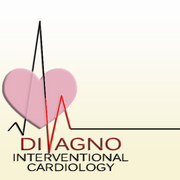What to Know About Exercise & Your Heart

With the new decade ahead, many Americans are focused on developing strong fitness habits to redefine their health. But if you’re looking for a little extra encouragement, it can help to understand just how exercise can benefit your body—especially your heart. Whether you’re worried about high blood pressure or want to reduce your risk of heart disease, here are a few important points to know about physical activity and cardiovascular health.
How Does Exercise Help Your Heart?
Exercise increases cardiovascular processes, and in turn, strengthens the heart muscle. As the heart grows stronger, it can pump blood more efficiently. Specifically, the organ will pump slower and help lower high blood pressure. These benefits can protect the arteries from damage and minimize your overall risk of heart disease.
 Along with a balanced diet, regular fitness is also critical to maintaining a healthy weight. Getting rid of extra pounds—especially within the abdominal region—can reduce the stress placed on the heart.
Along with a balanced diet, regular fitness is also critical to maintaining a healthy weight. Getting rid of extra pounds—especially within the abdominal region—can reduce the stress placed on the heart.
Physical activity also helps promote good (HDL) cholesterol while lowering bad (LDL) cholesterol to help keep plaque from clogging arteries—a problem that restricts blood flow and increases the risk of heart attack and stroke.
What Are the Different Types of Fitness?
While there are many different ways to workout, most are defined as either aerobic or anaerobic types of exercise.
Aerobic or cardio activities—such as running and swimming—increase your heart rate and breathing rate over a sustained period. In terms of heart health, aerobic activity is associated with burning calories, lowering blood pressure, boosting endurance, and easing stress.
Anaerobic or strengthening activities—such as lifting weights—are those that involve short bursts of exertion. This type of fitness is known to burn fat, strengthen bones, and build muscle. Stronger muscles are better at withdrawing oxygen from the blood, which, in turn, can reduce stress on the heart.
How Should You Start an Exercise Routine?
If you’re starting a new fitness regimen, start slow and don’t overexert yourself. You should build endurance slowly so that you can enjoy the benefits of exercise without placing too much stress on the body.
To minimize the risk of injury, always be sure to stretch and warm-up before activity, as well as cool-down afterward.
It’s also important to work with health care providers to develop a balanced diet that will provide you with the nutrients and energy you need to stay active.
While regular fitness is a vital part of lifelong wellness, it’s always important to consult a professional before starting a new routine—especially if you have a cardiovascular condition, such as heart disease or high blood pressure. Providing comprehensive cardiac care in Rochelle Park, NJ, the specialists at DiVagno Interventional Cardiology, MD, PA will help manage your heart health so that you can safely begin and sustain an active lifestyle. Visit this Bergen County interventional cardiology practice online to learn more about these services, or call (201) 845-3535 to schedule an appointment with an experienced heart doctor.
About the Business


